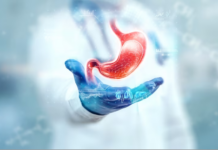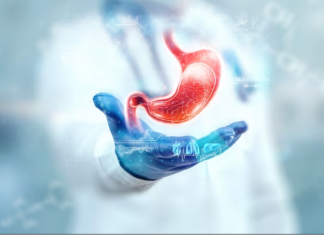Losing weight can be a challenging task, but with the right foods and a healthy lifestyle, it can be achievable. Eating a well-balanced diet that is high in protein, fiber, and healthy fats can help you feel full and satisfied while also supporting your weight loss goals.
Here are a few foods that certainly help you lose weight:
- Lean proteins Protein is an essential nutrient that can help you feel full and satisfied. Eating lean protein sources like chicken, turkey, fish, eggs, and tofu can help you build and maintain muscle mass, which is important for burning calories and losing weight. Aim for at least 20-30 grams of protein at each meal to help you stay full and satisfied.
- Fruits and vegetables are low in calories and high in fiber, which can help you feel full and satisfied without consuming a lot of calories. Try to include a variety of colorful fruits and vegetables in your diet, such as berries, leafy greens, bell peppers, and sweet potatoes.
- Whole grains are rich in fiber, which certainly help you feel full and satisfied. They also provide important nutrients like B vitamins, iron, and magnesium. Choose whole grains like quinoa, brown rice, whole wheat bread, and oatmeal over refined grains like white bread and pasta.
- Nuts and seeds are a good source of protein, healthy fats, and fiber. They can help you feel full and satisfied while also providing important nutrients like vitamin E and magnesium.
- Legumes Legumes like beans, lentils, and chickpeas are a good source of protein, fiber, and complex carbohydrates. They can help you feel full and satisfied while also providing important nutrients like iron and folate. Try adding legumes to your soups, salads, and stir-fries.
- Low-fat dairy Low-fat dairy products like milk, yogurt, and cheese are a good source of calcium, which is important for bone health. They can possibly help you feel full as well as satisfied. Moreover, Choose low-fat or non-fat options in order to keep calories in check.
- Healthy fats Healthy fats like olive oil, avocados, nuts, and seeds can help you feel full and satisfied while also providing important nutrients like vitamin E and omega-3 fatty acids. However, it’s important to eat these foods in moderation since they are high in calories.
In addition to including these foods in your diet, it’s important to make healthy lifestyle choices like getting regular exercise, drinking plenty of water, and getting enough sleep. Aim for at least 30 minutes of moderate-intensity exercise most days of the week, and try to get 7-8 hours of sleep each night.
Stay away from Fast Food
Fast food is often associated with weight gain and other health issues. Fast food is typically high in calories, unhealthy fats, sodium, and sugar, and low in essential nutrients like fiber, vitamins, and minerals. Consuming fast food regularly can lead to weight gain, poor nutrition, and other health problems like high blood pressure, high cholesterol, and diabetes.
One of the biggest issues with fast food and weight loss is portion sizes. Fast food meals are often much larger than what we need, and they contain a high amount of calories, fat, and sodium. For example, a single meal at a fast food restaurant can contain more than the recommended daily intake of calories, fat, and sodium. This makes it difficult to maintain a calorie deficit and lose weight.
Another issue with fast food and weight loss is that it’s often high in added sugars. Fast food meals are typically loaded with sugary drinks, desserts, and other treats. These added sugars can contribute to weight gain and other health problems like diabetes and heart disease.
Finally, fast food is often low in essential nutrients like fiber, vitamins, and minerals. A diet that is lacking in these nutrients can lead to poor health outcomes and make it more difficult to maintain a healthy weight.
If you’re trying to lose weight, it’s best to avoid fast food as much as possible. Instead, focus on eating a well-balanced diet that is high in protein, fiber, and healthy fats. Try cooking at home more often and planning your meals ahead of time to avoid the temptation of fast food. And if you do need to eat out, choose restaurants that offer healthier options like salads, grilled meats, and vegetables.
Conclusion
It’s also important to pay attention to portion sizes and to limit your intake of processed and high-calorie foods like sugary drinks, sweets, and fried foods. By making these changes to your diet and lifestyle, you can create a calorie deficit and lose weight in a healthy and sustainable way.










